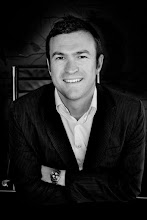Kicking off session 2 - Jonathan Ornstein
Jewish life in Krakow
How HRH Prince Charles helped to build a Jewish Community centre in Krakow -but now the need to attract Jews back to Krakow given there are only 150 Jews in Krakow.
Interesting view on how most Jewish people come to Krakow on hertiage tours - and go from ghetto, to concentration camp, to another camp to a cemetary. He compared this with a 2nd generation Japanese going back to Japan - only to visit Hirosima and Nagasaki.
2nd speaker - Noam Kostucki
How selfishness is the best reason to cooperate
3rd - Marek Minakowski - chief scientist at One.pl - a leading local portal
He's going to have a stab at predicting the future - excellent
Bascially nothing will change as human brain will not change. Its still going to be a case of Pull and Push - as we pull from Google now and Push to Facebook
Pull might become the 'crystal ball' to which you can pose any question. And push will become some kind of 'perfect secretary' who protects you from the over-burden of infomation.
Hmmm interesting guy but not sure I caught all he said.
4th Speaker -Sandra Bichl
2+2 is less than 4....how we are not predisposed to teamwork (apparently in German TEAM stands for "great, someone else to do the work")
Moving on to our hidden talents as individuals - either you've found them and its working for you, or you have yet to discover them (thats nice to hear!)
5th - Sebastian Straube
At current rate of development - we need 3 more Earth's to keep us sustained. That could be a problem
Sustainovation is the answer he tells us.
Bottom of the Pyramid innovation - focusing on the worlds 4 billion who have less than $2/day
Cradle to Cradle innovation - closed cycles for zero footprint
Catalytic innovation - disruptive innovation for social change - such as giving up your time for free
Next - Alek Tarkowski - given I have about 20 mins of battery left, might not get thru the session.
How do you protect culture in the digital age.
It seems that building culture actually means building another building - cultural institutions could use the internet to supplement whats missing.
If instituations move online, they need:
Openess - making stuff available so someone, somewhere can help and find an answer
Sharing -
Sustainability - find ways to support creators over a long time
Durability - what would a 100 year Wikipedia look like?
Indeed the battery did cut out half way thru this talk - shame as it was one of the best (in my view) so far. He went on to talk about cultural curation and how this will become more and more important yet easier - even creating a playlist is an act of curation.
Session closed with an amazing recital by a cellist and acordian player - playing a modern composition by a young Polish musician. Excellent - there is more music to come later. Probably better to see that on http://tedxwarsaw.com/

No comments:
Post a Comment